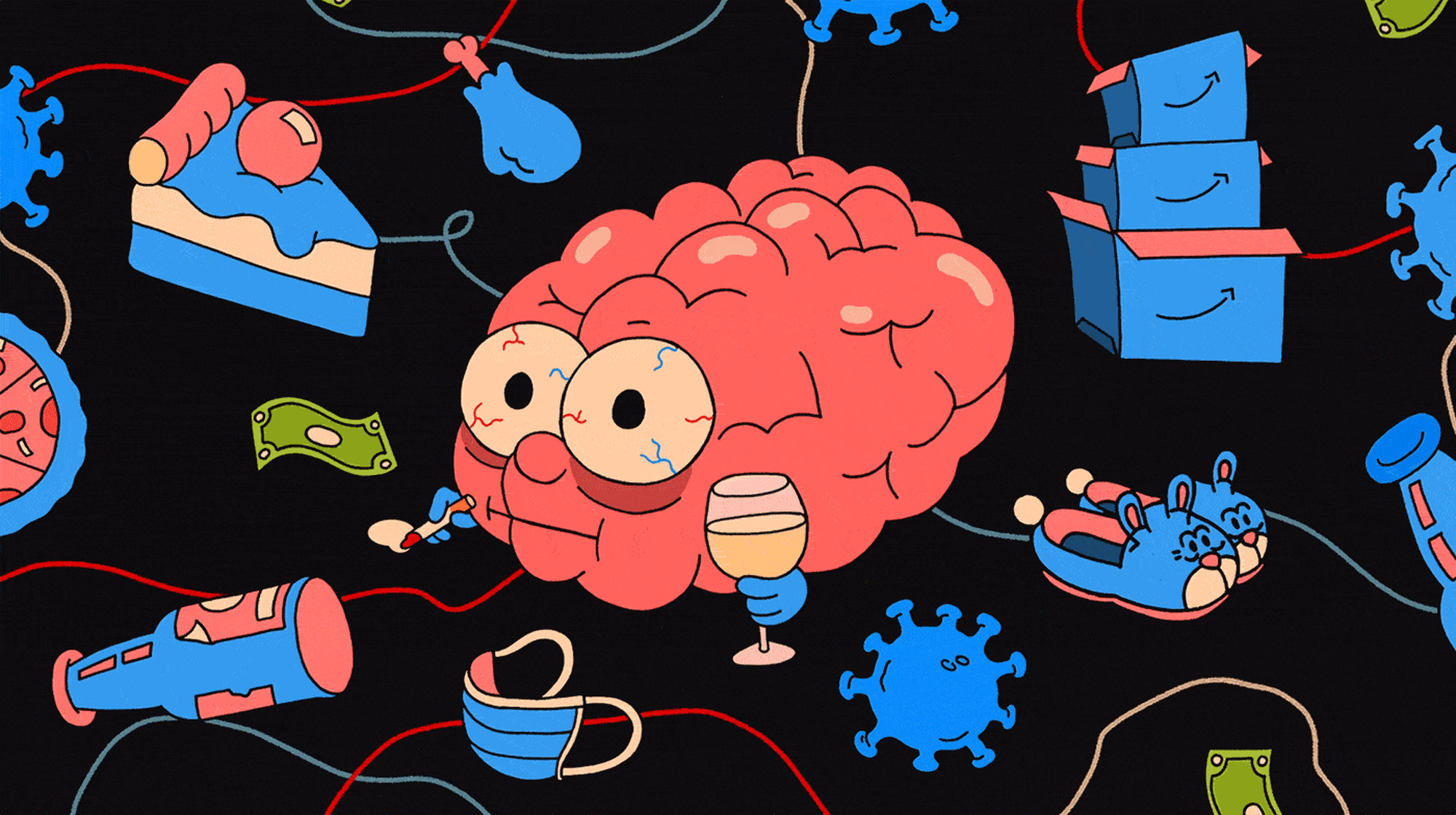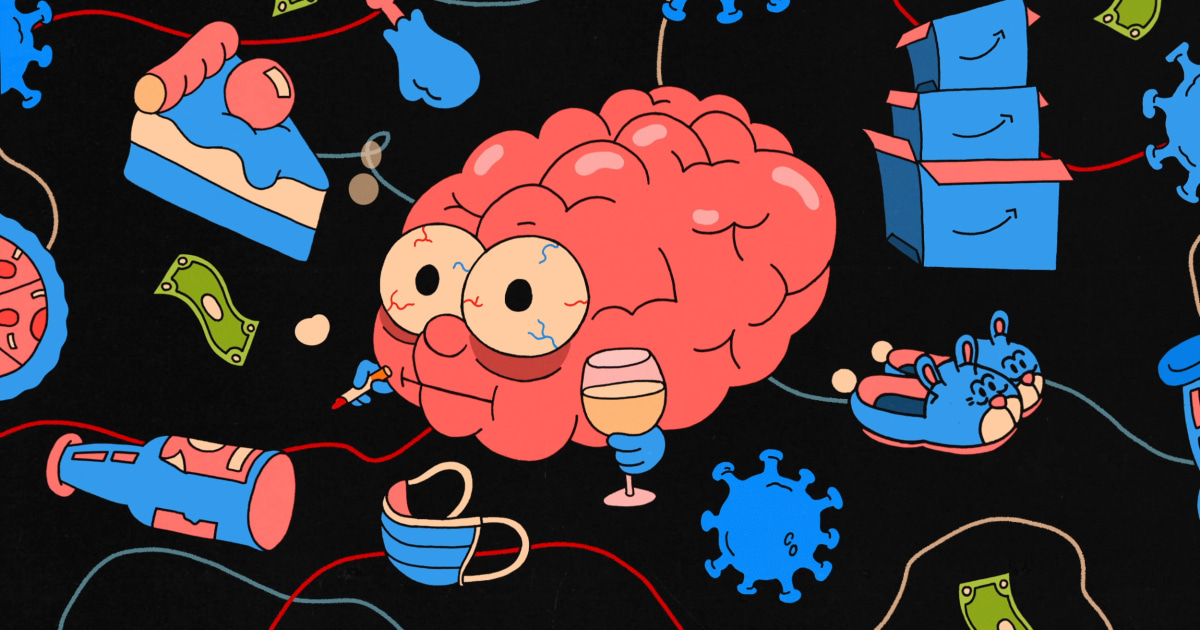- Joined
- Dec 11, 2018
- Messages
- 1,185
- Trophies
- 0

When it comes to vices during the pandemic, simply put, it's been difficult to say "no." Drinking an extra glass of wine here, eating half a birthday cake in one sitting there — whatever it takes to escape the constant strain of life under lockdown. That seemed reasonable in March, anyway.
But nine months on, when experience has demonstrated that chain-smoking a pack of cigarettes doesn't compensate for human interaction, why do bad habits continue to compel us?
The prolonged traumatic, or "chronic toxic," stress that most people have been experiencing throughout the pandemic makes it more difficult to keep desires in check, and it in turn promotes illogical pleasure-seeking, said Dr. Robert Lustig, a professor emeritus of pediatric endocrinology at the University of California, San Francisco, and author of "Metabolical." In scientific terms: When brains are flooded with the stress hormone cortisol on a long-term basis, it inhibits the function of the prefrontal cortex, leading to excessive activation of the "reward center" of the brain — triggering the excessive baking, drinking, smoking and shopping that filled the idle hours of 2020.
The jump from sifting flour to full-blown addiction might sound extreme, but it raises the question of why exactly people turn to certain things for comfort even when they know the feeling is fleeting.
"That's the million-dollar question," said Laurie Santos, a professor of psychology at Yale University and host of "The Happiness Lab" podcast. "We know neuroscientifically that there's a disconnect between the kinds of things that we want and the kinds of things that we like. Wanting is a motivational process. Liking is how you're going to feel when you get it."
She said the disconnect is strongest in the domain of addictive drugs: craving, or "wanting," the drug will drive people to extremes to obtain it, but the actual payoff, or "liking," is low because they're already habituated to it.
As Americans coped with pandemic-fueled discretionary spending, it wasn't just Big Tobacco that benefited: This Cyber Monday, Nov. 30, the first Monday after Thanksgiving, became the biggest online shopping day in U.S. history, with a grand total of $10.7 billion in purchases — a number as indicative of the collective brain's search for gratification as any other. And one category that surged notably was self-care.
"Buying new material possessions just simply doesn't make us as happy as we think. In fact, we'd be better off spending money on other people. Doing nice things for others seems to be actually a thing that makes us happy over time," she said.
With the help of vaccines, the return of society may be just the thing to replace instantly gratifying habits like impulse-spending stimulus checks with more lasting enrichment.
"After lockdown, we're going to get these amazing fresh starts on the routines we have, how we interact, who we interact with," Santos said. "It really will give us opportunities to build in more positive habits and use what we learned during this time to create a more nutritious life for ourselves."

Why a stressful year has led us to drink, eat and shop. It's our brains on cortisol.
When experience has demonstrated that an extra glass of wine or a slice of cake won't make us feel better in the long run, why do bad habits continue to compel us?